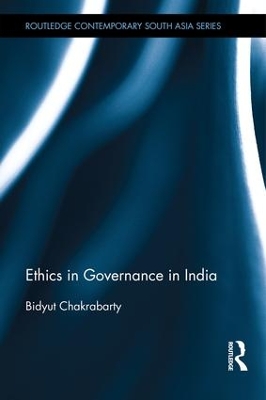Routledge Contemporary South Asia
1 primary work • 3 total works
Book 22
The rise of Maoism as one of the organized political movement in India is the outcome of a historical situation. Both colonialism and the failure of the Indian state to implement land reforms more stringently in the aftermath of independence resulted in terrible sufferings of the marginalized, land- dependent, sections of society.
Through historical analysis, this book assesses the ideological articulation of the contemporary ultra-left movement in India, including Maoism which is expanding gradually in India. The author provides answers to the following issues: Is Maoism reflective of the growing disenchantment of the people in the affected areas with the state? Is it a comment on `the distorted development planning' pursued by the Indian state? Is this an outcome of the processes of `deepening of democracy' in India? Using Orissa as a case study, the book raises questions on India's development strategy. The author argues that Maoism provides critical inputs for an alternative paradigm for development, relevant for `transitional societies' and that it is a still a powerful ideology for the poorer parts of the world although its ideological appeal has declined internationally.
Presenting an analysis of Corporate Social Responsibility (CSR) in India, this book looks at the unique roots of the concept in India. It examines Gandhi's philosophical moorings that inform India's approach to CSR, and the role of civil society in setting an agenda for championing the rights of the stakeholders. The book goes on to focus on the role of the government in grooming the Indian business to be sensitive of its social concerns.
Drawing on rich empirical data, the book shows that CSR in India cannot be conceptualized in ethnocentric terms. Arguing that it is not about 'the typical Indianness' of the articulation, it emphasizes the point that CSR in India needs to be conceptualized in a wider perspective by taking into account its philosophical roots with reference to the prevalent socio-economic and political context. The book is a valuable contribution to the literature on CSR, and is of interest to scholars of Asian Studies, business and development studies.
Governance and ethics are intertwined. A government functions within certain broad moral and ethical parameters, integrally linked with the sociological foundation of the polity in which it is articulated. The importance of ethics in governance has acquired a significant place in contemporary theoretical discussion.
This book situates ethics in governance in India in the national frame and incorporates the context of globalization, allowing for the increasing importance of non-state global actors in national decision making. The author argues that a lack of ethics quickly turns into corruption and leads to governmental efforts to deal with it. He proposes that ethics are a set of standards that a society places on itself to articulate its responses to societal needs, and discusses the efforts of the Indian government at eradicating corruption and its failure.
A theoretical approach to the issues of ethics in governance and corruption, this book is of interest to academics in the fields of Asian Politics, in particular Indian politics, and political philosophy.

